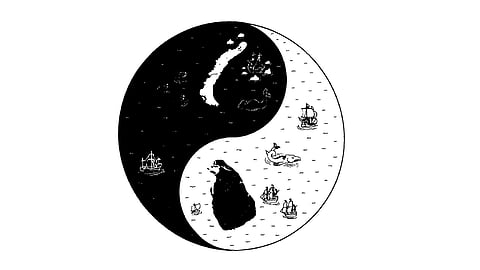As a part-time lexicographer (I am the Sri Lankan English consultant to the Oxford English Dictionary), I have a special interest in the subject of 'serendipity'. This is not just because this mellifluous word is indelibly associated with Sri Lanka – based, as it is, on Serendib, the Arabic name for the island – or that it has contributed a notable concept to the English language. Rather, the interest is based on an endeavour to correct two misconceptions surrounding the term. The first of these errors is the belief that the 18th-century writer Horace Walpole coined the word in his book The Three Princes of Serendip. In fact, the story in this book, a fairytale of sorts, was not even written by Walpole, nor did he ever claim that it was. Rather, the book was partly compiled from traditional stories and published in 1557 by a Venetian, Michele Tramezzino. It was only two centuries later, in 1754, that Walpole came up with the word serendipity from an episode in this tale about the quest for a missing camel. Surprisingly, the first direct English translation of Tramezzino's work appeared only in 1964 as Serendipity and the Three Princes: From the Peregrinaggio of 1557.
The second misconception is that serendipity is synonymous with simple accidental discovery, an idea that is at variance with Walpole's more complex and metaphorical original meaning. His explanation centres on the heroes of the tale, who, he says, "were always making discoveries, by accident and sagacity, of things they were not in quest of". Even the definition in the Oxford English Dictionary – "the faculty of making happy and unexpected discoveries by accident" – does not meet Walpole's prescription of a gift for discovery by accident and sagacity while in pursuit of something else. These ingredients are cumulative and, in the ideal dictionary definition, all would receive mention.

